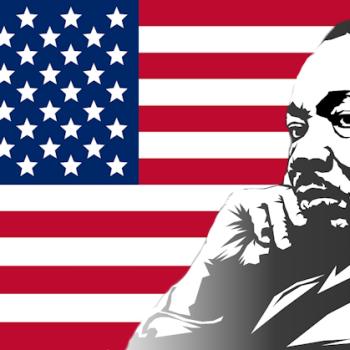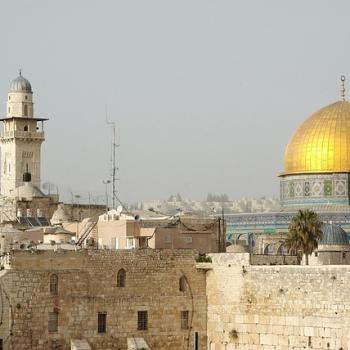
by Syed Muhammad Saleh Nasser & Syed Muhammad Tahir Nasser
Economic inequality is bad news for both rich and poor, as economists are slowly realising. House of Debt, acclaimed by the Financial Times as the “most important economics book” of 2015, by Princeton’s Professors of Economics, Atif Mian and Amir Sufi, demonstrated this well. They showed that the main cause of the 2008 U.S-led global recession was that indebted households pulled back on spending more during an economic downturn than the less indebted, driving businesses big and small into the ground and putting the whole economy into recession. Given that as of December 2015 household debt in the UK stands at a staggering 135% of income, and that U.S household debt is the highest it has been since 2010, we have good reason to worry.
The root of this problem is debt and the consequent wealth-gap between creditors and debtors. Interestingly, Islamic economic theory addresses such inequality and provides real solutions. Did you even know that Islam teaches economics?
Islamic economic theory differs from our current model in two particular ways: firstly, capital taxation, known as zakat (meaning: “that which purifies”) is advocated over income taxation, and secondly, interest is prohibited. In truth, these two mechanisms go hand in hand. Here’s how.
There are two things in an economy: 1) money; 2) goods (like ice cream) and services (like launderettes). The value of money is only in its ability to obtain goods/services. Beyond this, it has no value in and of itself. This is the basic premise of money and the basic premise of Islamic finance. It is this principle that is violated by interest. How so?
Let’s take a society comprised only of 100 bottles and £100. 1 bottle = 1 pound. If the number of bottles increases by 50 but the amount of money in society increases by £200, then we will have 150 bottles and £300. Now 1 bottle = £2. The value of each bottle has gone up but the value of £1 has gone down. Now £1 only gets you half a bottle, whereas before you could get a whole bottle. This is called Inflation and occurs when the amount of money in society rises quicker than the goods/services. This process results in 1) goods/services getting more expensive and 2) money becoming relatively devalued.
Interest is the key driver of inflation. This is because interest results in money multiplying itself without any increase in goods/services. An individual with £100,000 in the bank gets an increase on his savings of £2000-£3000/year at an interest rate of 2-3%. His money has grown without any commensurate increase in the goods/services of society at all. This is the key driver of inflation: as the money of the rich grows exponentially and since sale is always to the highest bidder, the price of goods/services increases exponentially too.
The key to understanding how inflation drives wealth inequality in society is to understand that the rich live on their assets (acquired goods/services) through the generation of money via interest and inflation, not on their income. On the other hand, the poor live on their income, as they don’t have assets to any great extent. As inflation pushes the value of assets up while devaluing cash, the rich who hold assets get richer, while the poor, who live on cash from their incomes, have rising interest-driven debts to pay with a currency that is increasingly devalued, while trying to buy assets that are continuously increasing in price. Is it any surprise then that the wealthiest sixty-two individuals in the world hold as much wealth as the poorer 50% of humanity?
Islamic teachings address these issues very simply. Instead of taxing income, it advocates capital taxation of assets unused for one year (zakat). At the same time, it prohibits the system of interest, thus preventing inflation and preventing the devaluation of the income of the poor. Instead of providing loans with interest, Islam encourages banks to make investments, meaning that money would only be printed if a commensurate increase in goods/services were to occur. In cases where interest-free loans are made, it encourages debt-forgiveness as healthier than debt-enforcement – something that governments are today catching on to.
By taxing assets unused for one year instead of income, the poor, who live on their income, are freer to spend, thus driving the wheel of economic consumption, keeping businesses big and small, afloat. Capital taxation would also drive economic growth as it would be an incentive to invest into businesses. Furthermore, it would enrich the government, as demonstrated by Daniel Altman of the New York Times, who showed that a capital taxation rate of 1-2% on wealth over $500,000 would generate more tax for the U.S Treasury than their current income taxation rates. 0% taxation on assets up to $500,000 would also give ordinary individuals the freedom to build wealth. Additionally, by ridding us of interest, the indebted would be more able to move out of debt. Finally, given that the Qur’an commands that zakat money be used to aid social mobility, through distribution to the poor, needy, imprisoned, indebted etc., the gap between the rich and the poor would be further rapidly reduced.
So if a capital taxation, non-interest based system is so much better for 99.9% of people, why don’t we use it? Why have we got a system that works for only the 0.1%? Simple: the 0.1% have access via back-channels to the law-makers of our nations. If anything the Sanders-Clinton race has exposed, it is the degree to which financial manipulation of our representatives is occurring behind the scenes. If such an unjust system in which the poor continuously feed the rich continues, then the dissatisfaction of the masses, epitomized in the rise of such leaders like Corbyn in the U.K and Sanders in the U.S, will inevitably get worse.
So there you have it, the difference between an economic system revealed by God and a worldly economic system built on the backs of the poor, now on the brink of collapse. Given however, that “Muslim” countries don’t even practice these economic principles though, I wouldn’t hold out much hope that anyone else will either before the economic recession we are about to slide into, takes hold.
On that note, here’s a good website for calculating how much food to stock up on!












